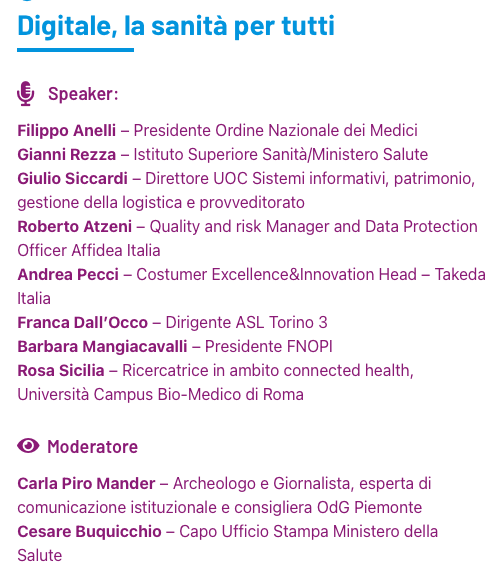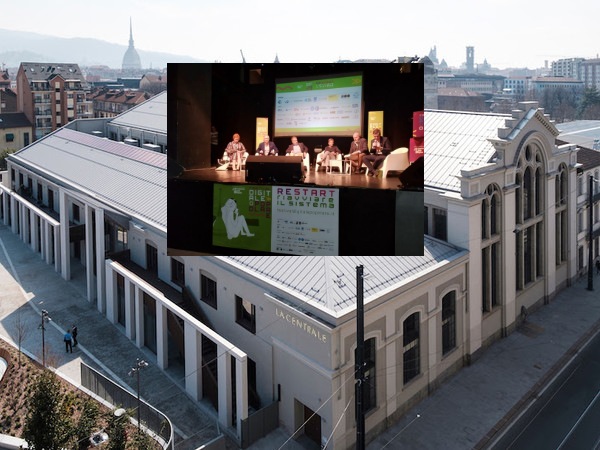Digital healthcare. In the days between 7 and 9 October this year the Popular Digital Festival organized by Digital Italy Foundation. Il luogo che ospitava l’evento ad inizio ‘900 era la prima centrale elettrica di Torino 
One of the topics addressed was: “Digital, healthcare for all”.
When we talk about digital in healthcare, we immediately think of telemedicine, artificial intelligence and hardware and software in general. In reality, in order to make the best use of these tools, it is necessary to invest in the processes of healthcare companies and hospitals.
Also present at the table were representatives of two of the companies that are most using artificial intelligence applied to healthcare: Affidea and Takeda. The first specializes in diagnostic imaging, the second is a pharmaceutical company specializing in oncology, gastroenterology, neuroscience and rare diseases.
He intervened for Takeda Italia Andrea Pecci, Costumer Excellence&Innovation Head
During the pandemic Takeda has revised some organizational mechanisms. Those facing outward have strengthened: “Already in 2014-15 we had introduced a multi-channel engagement for doctors by the scientific informants – said Andrea Pecci – The pandemic has therefore found us ready and we have increased this holistic approach”.
Approximately 30-35% of physicians requested multi-channel engagement. “Our goal is to provide the information
The real revolution, however, took place in the internal company organization: "Digitalization has allowed us to change the paradigm, setting up a new working model within the offices - explained Pecci - We asked people to change their mindset: we are no longer paid for the time we give to the company, but for what we produce, for the achievement of the established objectives. It is a mix of agile and intelligent work”.
The fallout from this organizational system has a positive impact on the planet (employees move less and therefore pollute less) and on personal well-being (the greater flexibility allows for a better balance with private life).
“At first those used to office life felt a little oppressed – admitted Pecci – In the early days we witnessed an overproduction of emails and video calls. Today, however, everything works better: we have the right to disconnect and we know not to respond immediately to a message. If there is an emergency, we are called”.
(Estratto da PPHC – Digitale, la sanità per tutti – 13 ottobre 2022)
Related news: Interactions between companies, doctors and purchasing managers: the future is increasingly ibI laugh
